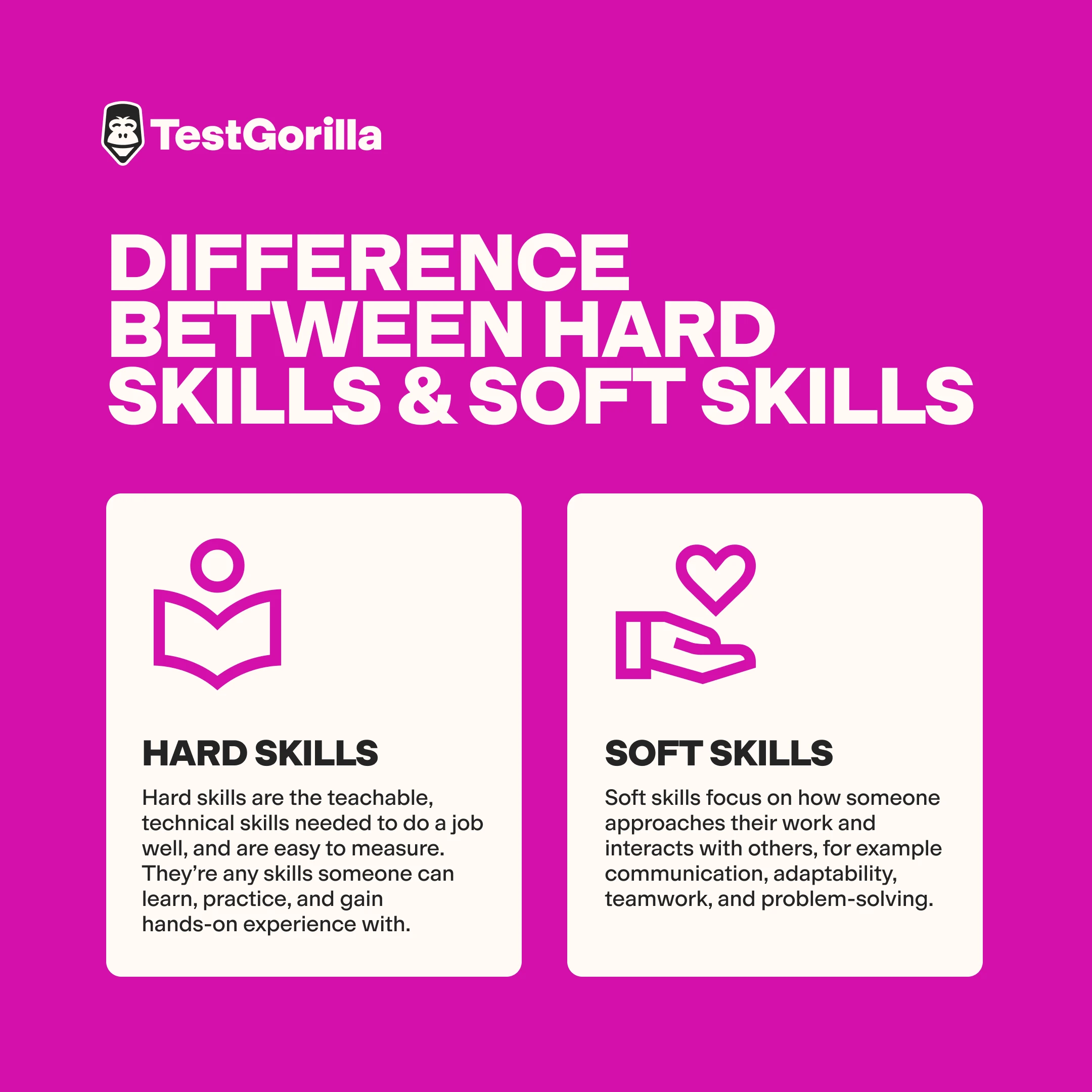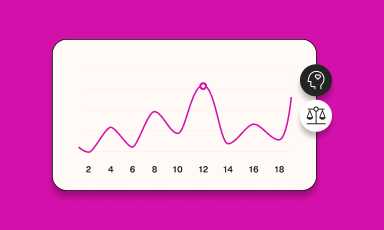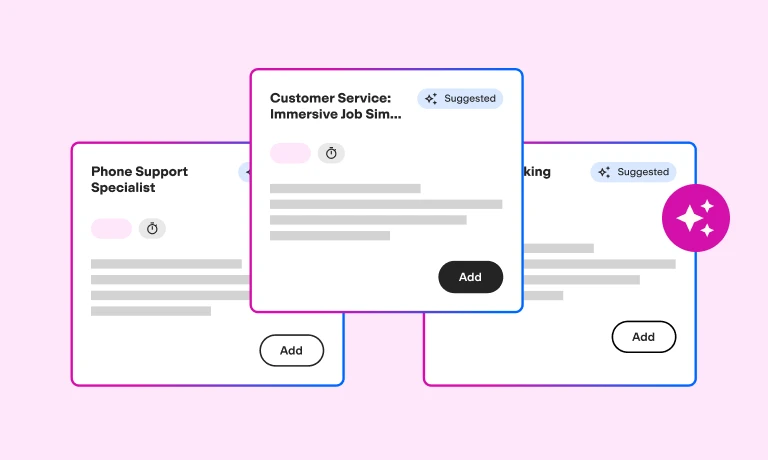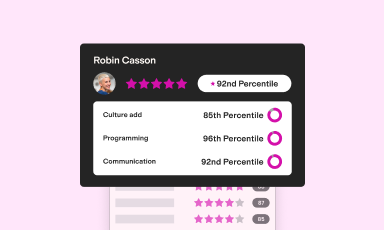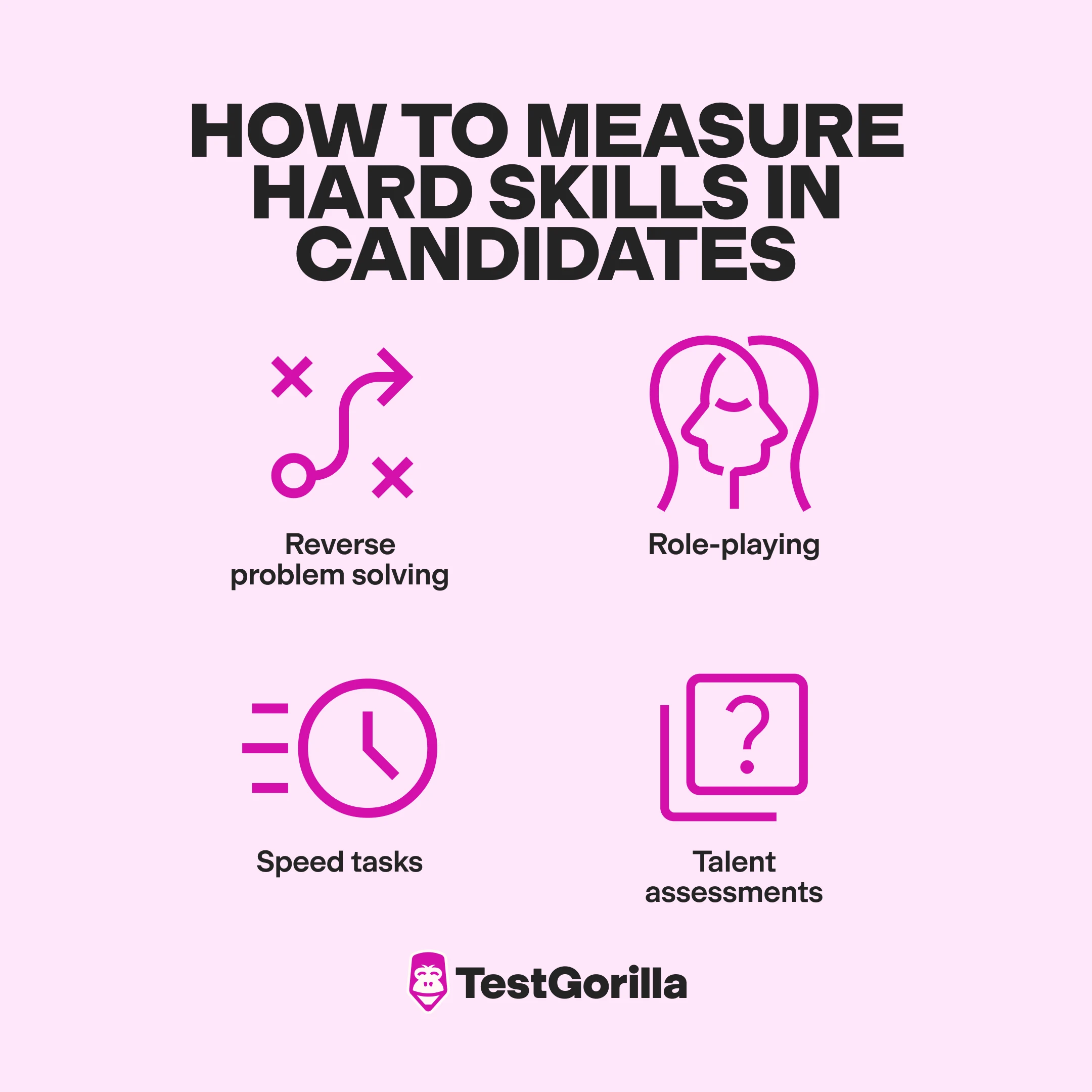Hard skills are the teachable, technical skills needed to do a job well. They’re any skills someone can learn, practice, and gain hands-on experience with.
There are broad hard skills – like project management or proficiency in Microsoft Excel – that can apply to many jobs and industries. There are job-specific hard skills, too – such as programming in Python for a software developer or operating heavy machinery for a construction worker.
Hard skills are much easier to measure than soft skills, such as communication or teamwork, which are more about how an individual works with others. For instance, you can test hard skills through a coding assessment, a language proficiency test, or by checking for relevant certifications. As an employer, this makes it easier to set clear benchmarks and see how well a candidate’s abilities align with the role.
Hard skills vs. soft skills: What’s the difference?
Hard skills are technical, teachable, and easy to measure. Think coding, writing, or operating machinery. They’re the “what you do” part of a job and can be enhanced with courses, training, and practice.
Soft skills, on the other hand, focus on how someone approaches their work and interacts with others daily. These include communication, adaptability, teamwork, and problem-solving. They represent the human side of work, shaping how people treat their colleagues, share ideas, and handle challenges.
While soft skills can be taught and improved, they often require time and real-world experience to develop rather than being quickly acquired through a single course.
Examples of hard skills across different industries
Hard skills can vary depending on the industry or job role, so let’s explore some examples across different fields.
1. Digital marketing
Digital marketing companies will need candidates skilled in Search Engine Optimization (SEO), graphic design, project management, video editing, and social media strategy.
2. Sales
Candidates will need to demonstrate skills like CRM (Customer Relationship Management) software proficiency, data analysis, lead generation, and sales forecasting. Strong presentation and negotiation abilities are also key, especially when it comes to closing deals. Foreign language skills may also be beneficial for companies that trade in multiple countries.
3. Finance
Candidates applying to roles in finance will need a solid grasp of financial modeling, accounting principles, and proficiency in tools like Excel, QuickBooks, or SAP. Skills in budgeting, forecasting, and risk assessment are also must-haves.
4. Tech
Tech roles require a solid foundation in programming languages, database management, software testing, and cloud computing. Familiarity with agile methodologies and cybersecurity practices is often a must, as well as the ability to translate complicated ideas into simple language. After all, most tech stakeholders aren’t tech heads themselves!
The best insights on HR and recruitment, delivered to your inbox.
Biweekly updates. No spam. Unsubscribe any time.
Why are hard skills important in hiring?
Hard skills are important in hiring for several reasons:
Easy to quantify. Hard skills are simpler to quantify than soft skills, meaning it’s easier to determine whether or not a candidate has the skills needed to do the job.
Enhances brand reputation. Candidates with strong hard skills bring credibility and expertise to your organization, enhancing your brand’s reputation both internally and externally.
Reduces training costs. A candidate with robust hard skills can hit the ground running, cutting down the time and money you’d otherwise spend on extensive training.
Future proofs the team. Hiring candidates with up-to-date, in-demand hard skills keeps your team ahead of industry trends and ready for what’s next.
How to assess hard skills in candidates
Looking to measure hard skills in your job applicants? Try using these tried and tested methods.
1. Reverse problem solving
You can assess a candidate’s hard skills by presenting them with a mock project with deliberate oversights, inefficiencies, and errors. Ask them to identify the problems and come up with solutions for how they would solve them. This not only evidences their skills and abilities but also highlights how well they can problem solve and think critically.
2. Role-playing
Presenting candidates with real-world scenarios they might face on the job is a fantastic way to see their hard skills in action. For example, have a customer service candidate handle a tricky client interaction or a project manager prioritize tasks in a chaotic situation.
3. Speed tasks
Giving candidates a series of quick-fire, 15-minute tasks can be a great way to test their ability to think on their feet and apply their hard skills under time pressure.
4. Talent assessments
Pre-employment talent assessments are the easiest and fairest way to measure a candidate's hard skills. Through a series of standardized, tailored tests, you can evaluate the exact skills needed for your open role.
Talent discovery platforms like TestGorilla make this process even easier by offering science-backed talent assessments to measure various skills for various job roles. If you’re looking for something bespoke, you can combine up to five tests to create a custom assessment, and even create your own unique test questions to measure candidate skills. Plus, TestGorilla will benchmark candidates against one another, highlighting any clear outliers to streamline your hiring process.
FAQs
What is the definition of hard skills?
Hard skills are any teachable, job-specific skills or knowledge that can be measured or quantified. Skills like coding, data analysis, lead generation, employment law, and video editing are all examples of hard skills.
Is adaptability a hard skill?
Although adaptability can be learned and improved upon, it is technically considered a soft skill.
Is empathy a hard or soft skill?
Empathy is a soft skill.
You've scrolled this far
Why not try TestGorilla for free, and see what happens when you put skills first.


